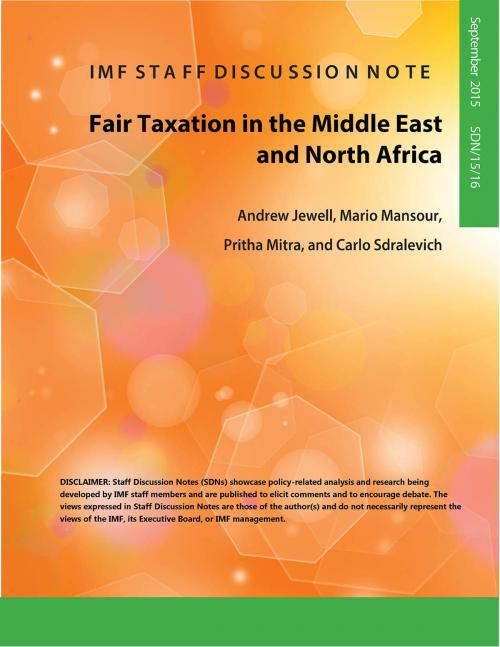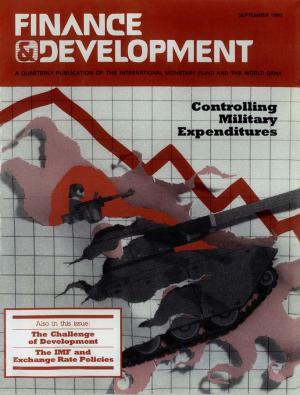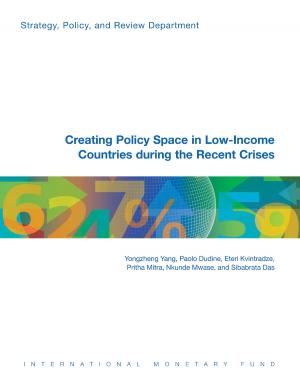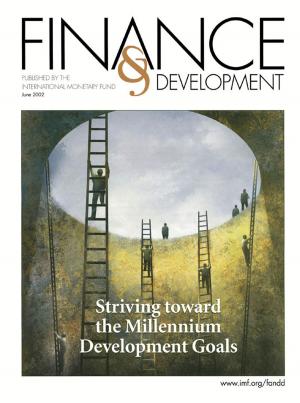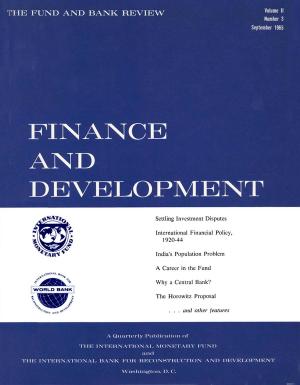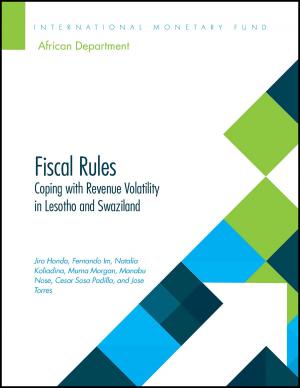| Author: | Mario Mansour, Pritha Ms. Mitra, Carlo Mr. Sdralevich, Andrew Mr. Jewell | ISBN: | 9781513519753 |
| Publisher: | INTERNATIONAL MONETARY FUND | Publication: | September 2, 2015 |
| Imprint: | INTERNATIONAL MONETARY FUND | Language: | English |
| Author: | Mario Mansour, Pritha Ms. Mitra, Carlo Mr. Sdralevich, Andrew Mr. Jewell |
| ISBN: | 9781513519753 |
| Publisher: | INTERNATIONAL MONETARY FUND |
| Publication: | September 2, 2015 |
| Imprint: | INTERNATIONAL MONETARY FUND |
| Language: | English |
Fairness – and what governments can do about it – is at the forefront of economic and social debate all over the world. In MENA, this has been at the core of recent political transitions but has not been adequately addressed. This SDN explores how tax systems – a critical interface between the state and citizens – can play a role in meeting demands for greater economic fairness in MENA countries. The SDN finds that for countries with well-established non-hydrocarbon tax systems (mostly oil importers) reforms should focus on simplifying tax structures and introducing more progressivity of personal income taxes, broadening tax bases, and better designing and enforcing property taxes. Tax administration should be more efficient and user-friendly while simplifying tax regimes will reduce the scope for arbitrary implementation. MENA countries with less established non-hydrocarbon revenue systems can begin with a “starter pack” that includes introduction of low-rate value-added and corporate income taxes, excises, and property taxes while building up administrative capacity and taxation expertise together with plans for introducing a personal income tax. Across the region, effective communication, transparency, and constructive dialogue between the State and citizens are critical to the success of reforms.
Fairness – and what governments can do about it – is at the forefront of economic and social debate all over the world. In MENA, this has been at the core of recent political transitions but has not been adequately addressed. This SDN explores how tax systems – a critical interface between the state and citizens – can play a role in meeting demands for greater economic fairness in MENA countries. The SDN finds that for countries with well-established non-hydrocarbon tax systems (mostly oil importers) reforms should focus on simplifying tax structures and introducing more progressivity of personal income taxes, broadening tax bases, and better designing and enforcing property taxes. Tax administration should be more efficient and user-friendly while simplifying tax regimes will reduce the scope for arbitrary implementation. MENA countries with less established non-hydrocarbon revenue systems can begin with a “starter pack” that includes introduction of low-rate value-added and corporate income taxes, excises, and property taxes while building up administrative capacity and taxation expertise together with plans for introducing a personal income tax. Across the region, effective communication, transparency, and constructive dialogue between the State and citizens are critical to the success of reforms.
